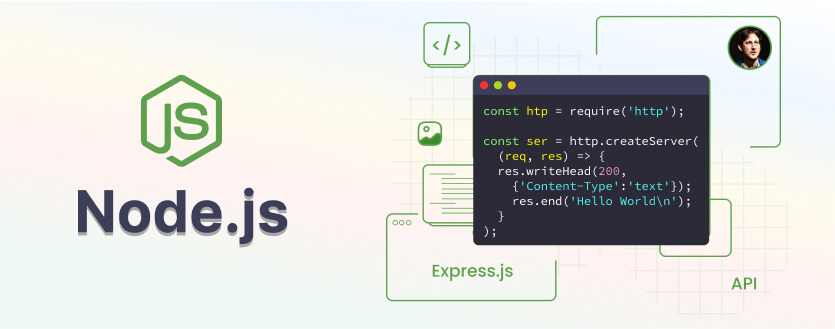NodeJS Introduction

Hey there!
Get ready to dive into the amazing world of Node.js as we kickstart this exciting tutorial!
Are you as thrilled as we are?
Well, you should be! Node.js opens up a whole new realm of possibilities for your server-side development adventures.
So buckle up and let's embark on this fun-filled Node.js journey together.
We can't wait to see what you'll create with the power of Node.js!
Let's get started and make some magic happen!
Node.js has emerged as a powerful platform for building scalable and efficient server-side applications. With its unique architecture and event-driven nature, Node.js has revolutionized the way developers approach backend development.
In this tutorial, we will explore the fundamentals of Node.js and delve into its key features and benefits.
What is Node.js?
Node.js is an open-source JavaScript runtime environment built on Chrome's V8 JavaScript engine.
Unlike traditional server-side technologies, Node.js enables developers to run JavaScript on the server, offering a unified language for both client-side and server-side development.
This enables seamless communication between the frontend and backend, facilitating faster development and efficient data transfer.
What are the Advantages of Node.js?
1. Speed and Scalability
Node.js leverages non-blocking I/O operations and a single-threaded, event-driven architecture, making it incredibly fast and efficient. It can handle a large number of concurrent connections with minimal overhead, making it ideal for applications requiring real-time updates and high scalability.
2. Rich Ecosystem
Node.js has a vibrant and extensive ecosystem of libraries, modules, and frameworks available through its package manager, npm. This vast collection of tools simplifies development, allowing developers to build applications more efficiently and with reduced effort.
3. JavaScript Everywhere
With Node.js, developers can use the same language (JavaScript) on both the client-side and server-side. This eliminates the need to switch between different programming languages, promoting code reuse and accelerating development cycles.
4. Lightweight and Efficient
Node.js follows a lightweight approach, consuming fewer system resources and enabling efficient utilization of hardware. It excels in scenarios where speed and low memory footprint are crucial.
5. Community Support
Node.js boasts an active and supportive community, constantly contributing to its growth and evolution. The community provides regular updates, bug fixes, and a wealth of resources, making it easier for developers to stay up-to-date and resolve issues quickly.
In the next tutorial, we are going to look into the installation process of Node.js.
FAQs
Node.js is versatile and can be used to build various types of applications, including web servers, RESTful APIs, real-time chat applications, streaming services, command-line tools, and more.
Yes, Node.js is well-suited for building large-scale applications. Its event-driven architecture and non-blocking I/O model make it highly performant and capable of handling a large number of concurrent users. However, the choice of technology also depends on other factors like team expertise, application requirements, and project scope.
Node.js is primarily designed for server-side development, but it can also be used for frontend development tasks, such as building and bundling JavaScript files, running development servers, and automating build processes using tools like webpack and npm.